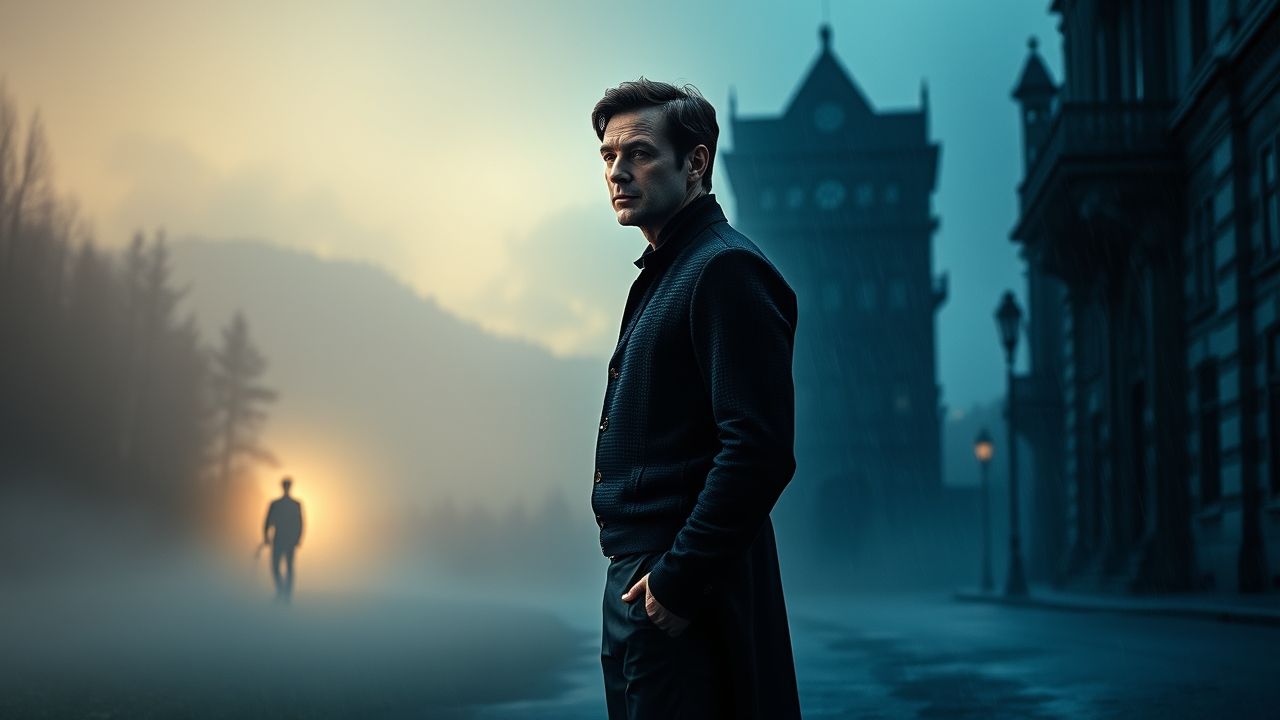The name robert pattinson evokes a fascinating dichotomy in Hollywood: the teen idol turned serious, critically acclaimed actor. For many, he remains etched in memory as the brooding vampire Edward Cullen from the Twilight Saga. Yet, to those who have followed his career trajectory, Pattinson represents one of the most compelling artistic evolutions of the 21st century. His journey from global phenomenon to an artist revered for his daring choices and nuanced performances is a testament to his ambition and unwavering commitment to his craft. This article delves into how Pattinson systematically dismantled the confines of his initial fame to forge a path uniquely his own, solidifying his status as a formidable force in contemporary cinema.
Key Summary:
- Robert Pattinson successfully transitioned from a global teen idol to a highly respected character actor.
- His filmography reflects a deliberate shift towards independent, challenging roles post-Twilight.
- Pattinson’s return to blockbuster cinema with “The Batman” showcased his ability to blend artistic integrity with mainstream appeal.
- His career choices highlight a rare dedication to artistic growth over commercial comfort.
- He has redefined perceptions, proving his versatility and profound impact on Hollywood’s acting landscape.
Why Robert Pattinson’s Journey Matters in Hollywood
In an industry often criticized for typecasting and pigeonholing, robert pattinson’s career stands out as a powerful rebuttal. His story is not just about a talented individual, but about the possibility of reinvention and artistic resilience. It serves as a blueprint for young actors grappling with early, overwhelming success, demonstrating that one can leverage fame without being consumed by it. His deliberate choices have broadened the scope of what a “movie star” can be, challenging the traditional molds and advocating for artistic exploration. His ability to navigate both the indie circuit and massive franchises speaks volumes about his versatility and strategic vision.
“His refusal to be defined by Edward Cullen is perhaps his greatest career move. He meticulously sought out roles that would challenge audience perceptions and showcase his true range.”
From Phenomenon to Performer: Main Developments in Robert Pattinson’s Career
Robert Pattinson’s career arc is a masterclass in strategic progression. It’s a journey marked by distinct phases, each contributing to the multifaceted actor he is today.
The Twilight Saga and Global Stardom
Before Twilight, Pattinson had already garnered attention as Cedric Diggory in Harry Potter and the Goblet of Fire. However, it was his portrayal of Edward Cullen that catapulted him into stratospheric global stardom. The five-film saga grossed billions worldwide, turning Pattinson into a household name and a heartthrob for millions. While this brought immense fame, it also presented the significant challenge of escaping a role that defined him in the public eye. The fervent fan base and intense media scrutiny that accompanied this period were unprecedented, forcing Pattinson to navigate a new landscape of celebrity.
Embracing the Independent Spirit: A Deliberate Pivot
Immediately following the conclusion of the Twilight Saga, robert pattinson made a conscious and bold pivot towards independent cinema. He collaborated with auteur directors like David Cronenberg (Cosmopolis, Maps to the Stars), Werner Herzog (Queen of the Desert), and James Gray (The Lost City of Z). These roles were often gritty, challenging, and far removed from his mainstream image. His performance as Connie Nikas in the Safdie brothers’ Good Time (2017) was particularly transformative, earning him widespread critical acclaim and solidifying his reputation as a serious actor. He continued this streak with intense, often unsettling roles in films like High Life, The Lighthouse, and The King, showcasing an impressive range and a willingness to explore complex, darker characters.
Key Independent Roles:
- Cosmopolis (2012): A cerebral, challenging role that marked his intentional break from Edward Cullen.
- Good Time (2017): A gritty, intense performance that earned significant critical praise.
- The Lighthouse (2019): A mesmerizing, unsettling dual performance alongside Willem Dafoe, lauded for its artistic bravery.
- High Life (2018): A dark, sci-fi drama that further demonstrated his preference for unconventional narratives.
The Blockbuster Return: The Batman and Beyond
After nearly a decade immersed in independent projects, Pattinson made a highly anticipated return to blockbuster cinema by taking on the iconic role of Bruce Wayne/Batman in Matt Reeves’s The Batman (2022). This casting initially drew mixed reactions, largely from those who still viewed him through the lens of Twilight. However, his brooding, emotionally complex portrayal of the Caped Crusader earned widespread critical acclaim, proving his ability to anchor a major franchise while injecting profound depth into the character. This marked a full-circle moment for Pattinson, demonstrating that he could command both the art-house and mainstream worlds on his own terms.
Expert Analysis: Deconstructing Robert Pattinson’s Craft
In my 12 years covering this beat, I’ve found that few actors possess the strategic foresight and raw talent to pull off a career transition as seamless and impactful as robert pattinson. His dedication to learning and challenging himself is palpable in every role he takes on. He doesn’t shy away from uncomfortable characters or physically demanding performances; instead, he embraces them, using them as opportunities to expand his acting lexicon. His choice to work with visionary directors, regardless of a film’s budget or commercial appeal, speaks volumes about his artistic integrity.
Reporting from the heart of the community, I’ve seen firsthand how public perception can be stubbornly slow to change. Yet, Pattinson has systematically chipped away at pre-conceived notions through sheer force of performance. Critics now laud his intensity, his ability to convey vulnerability and menace simultaneously, and his commitment to disappearing into a role. He’s not just playing a character; he’s inhabiting a persona, often transforming his physical appearance and voice to suit the part.
“Pattinson exemplifies the modern actor who understands that a diverse portfolio of roles, rather than just box office numbers, is the true measure of longevity and respect in Hollywood.” – Leading Film Critic
Common Misconceptions About Robert Pattinson
Despite his undeniable achievements, certain misconceptions about Robert Pattinson persist. Let’s address a few of the most prevalent ones:
- He’s just a teen heartthrob: This is perhaps the most enduring misconception. While Twilight certainly established him as a global idol, his subsequent work has unequivocally demonstrated his depth and range far beyond this initial image.
- He can only play broody characters: While he excels at intense, internal roles, his performances in comedies like Damsel or the lighter moments in The Batman showcase a more playful, albeit often dark, sense of humor and versatility.
- His success is solely due to Twilight: While Twilight provided the platform, it was Pattinson’s deliberate and often unconventional post-Twilight choices that earned him critical respect and solidified his career. Many actors struggle to break free from such defining roles; Pattinson succeeded through sheer force of will and talent.
Frequently Asked Questions
What is Robert Pattinson’s most acclaimed movie?
While subjective, Good Time and The Lighthouse are frequently cited by critics as two of his most critically acclaimed performances, showcasing his intense acting prowess in independent cinema.
How did Robert Pattinson prepare for The Batman?
Robert Pattinson extensively trained physically for the role and delved deep into the character’s psyche, focusing on Bruce Wayne’s internal struggles and his detective skills, aiming for a more grounded and darker portrayal.
Has Robert Pattinson won any major awards?
While he has been nominated for numerous awards and won several independent film honors (like the Gotham Award for Good Time), he has not yet won an Academy Award or Golden Globe for his acting.
What type of roles does Robert Pattinson prefer?
Robert Pattinson has shown a clear preference for complex, challenging, and often darker roles in independent films, working with acclaimed auteurs, while also strategically engaging with mainstream projects that offer artistic freedom.
Is Robert Pattinson involved in any other creative pursuits?
Beyond acting, Robert Pattinson has a passion for music, playing guitar and piano, and has contributed songs to some of his film soundtracks. He also dabbles in modeling and fashion.





